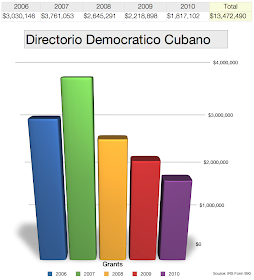Financial Post/ Peter Foster
 |
| Yadira Garcia former Minister, Ian W. Delaney and Raul Castro |
When the recent proxy fight broke out over CP — whose repercussions continued this week with
the resignation from the CP board of Rick George — my colleague Terence Corcoran cited another all-too-rare example of a catalyst investor taking on the Canadian corporate establishment. It was Ian “the Smiling Barracuda” Delaney’s successful 1990 fight for control of Sherritt, an historic but failing fertilizer and nickel-refining company based in Fort Saskatchewan, Alta.
In fact, the CP link doesn’t end there. Mr. Delaney subsequently guided Sherritt into Cuba, where he declared that he would make the company the island’s answer to … CP! Unfortunately, he spoke truer than he knew. Although Cuba now accounts for only a fifth of its assets, Sherritt has been a less than stellar performer over the past two decades. Meanwhile Mr. Delaney’s adventures as Fidel Castro’s “favourite capitalist” remain one of the more controversial aspects of the company’s recent history.
After Mr. Delaney expanded his Cuban ambitions to embrace a joint venture at Moa Bay, a cucaracha appeared in the ointment in the form of Helms-Burton, U.S. legislation that allowed its citizens, including naturalized Cuban-Americans, to sue anybody “trafficking” in assets expropriated by the 1959 Castro revolution. That included Moa Bay. The right to sue has been suspended by presidential decree ever since, but Mr. Delaney — who remains Sherritt chairman — is still not permitted to enter the U.S.
Helms-Burton came on top of the 1960 U.S. embargo, which has increasingly been seen as a tactical error by the U.S., since it provided Cuban apologists with a ready-made excuse for the island’s disastrous centrally planned economy.
During the Trudeau era, Canada had an ardent love affair with the Castro regime. The dictatorship has since become less fashionable in left-liberal circles, although radical environmentalists such as David Suzuki continue to celebrate the island’s small carbon jackboot print.
One suspects that Stephen Harper never had pictures of Che Guevara on his dorm wall. Earlier this year he attracted criticism from a chatter of caudillos at the Summit of the Americas when he joined President Obama in vetoing an invitation to Cuba to join the next summit. Mr. Harper is likely a good deal more genuinely ideologically opposed to the Castro regime than Mr. Obama, whose main consideration is the powerful Cuban exile constituency in Florida. Indeed, when Mr. Obama came to power he promised to ease relations with Cuba. Nevertheless, the embargo has stayed, and Mr. Harper has made clear that Canada still does not support it.
Canada’s official position on Cuban relations pointedly stresses “greater opportunities for the development of non-state economic activity and private initiatives,” although it also peddles the party line about Cuba’s emphasis on health and education, as if these might reasonably be bought at the price of freedom.
That the U.S. administration is going softer on Cuba was indicated by its recent welcome of the daughter of President Raul Castro, Mariela. Ms. Castro, a professional “sexologist,” was in the U.S. to address the issue of gay, lesbian, bisexual and transgender rights. This indicates that the Castro regime may be moving away from certain forms of persecution, although, as Cuban exile Carlos Alberto Montaner noted in a syndicated column, Ms. Castro’s support for freedom seems to be confined to areas “south of the navel.” Ms. Castro — while suggesting that all rumours that dissidents were jailed in Cuba were mere propaganda — also endorsed another term for Mr. Obama, which might well lose all those Floridian votes gained by his hard line at the Summit of the Americas.
Returning to Sherritt, even if the company doesn’t regard Helms-Burton as much of a threat any more, the legislation, and the embargo, have limited the company’s access to U.S. financing, suppliers and customers. Apart from the political risks, there is also Cuba’s ongoing status as a financial basket case. Whatever viability Cuba has had in recent years has been largely due to the support of Venezuelan President Hugo Chavez, who claims Fidel as an inspiration for his own economic tinkering, lengthy speeches and crushing of the opposition.
Venezuela truly suffers from the “oil curse,” that is, its petroleum riches enable Mr. Chavez to ignore/buy off/jail the electorate. He is good news for the Cuban dictatorship, however, since he ships both cut-rate oil and cheap loans to the island. One additional uncertainty for Sherritt therefore attaches to the possible end of Mr. Chavez, who is suffering from cancer.
When Mr. Delaney resigned as CEO of Sherritt earlier this year — having been forced to return to that position in 2009 after a long absence — he was unrepentant about his bet on Cuba, and was still claiming that he took the moral “high ground” in his investment. He still seems to think Toronto Mayor Rob Ford is a bigger political threat than the Castro brothers. However, Sherritt’s investments in Cuba have helped keep an odious regime in power, and have turned out to be of uncertain benefit to the company. When Raul Castro took over from Fidel four years ago, he promised more consumer goods, including electronics. One form of electronics that is conspicuously rare on the island is the technological platform for social media. The Castros are very keen to avoid a Cuban spring.
Sherritt’s underperformance would normally attract the kind of value-seeking attention that brought Mr. Delaney to the company 22 years ago, and Pershing Square’s Bill Ackman more recently to CP. However, the ongoing complexities of Cuban relations with the U.S. mean that no catalyst investor in Sherritt is likely to appear from south of the border. Unless, that is, he already has a buyer lined up for those Cuban operations.







 Following
the Obamacare decision, The Heartland Institute’s Maureen Martin, a
Senior Fellow for Legal Affairs, said, “Today’s decision will go down in
infamy. It marks the moment when we all lost our freedom because the
Supreme Court drew a road map to guide those dedicated to imposing a
totalitarian, statist government on the American people.”
Following
the Obamacare decision, The Heartland Institute’s Maureen Martin, a
Senior Fellow for Legal Affairs, said, “Today’s decision will go down in
infamy. It marks the moment when we all lost our freedom because the
Supreme Court drew a road map to guide those dedicated to imposing a
totalitarian, statist government on the American people.”









